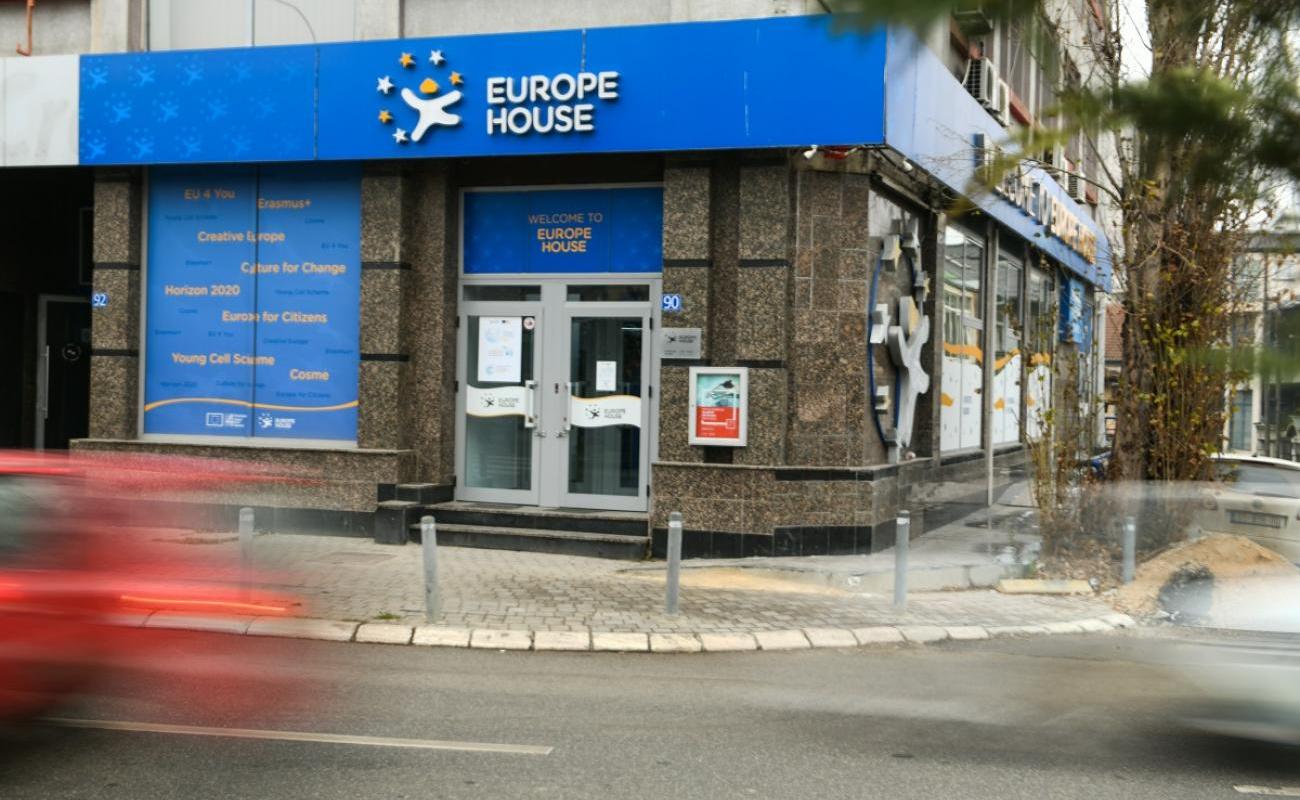Educational Volunteering Clubs trained about 500 young people in critical thinking, leadership and communication

In the Bear Forest in Badoc, a closing conference was held today with the participants of the Educational Volunteering Clubs. On this occasion it was announced that during the period September 2021 – June 2022, about 30 clubs were active in 15 municipalities of Kosovo, and over 50 educational volunteering projects were implemented in the community.
The Educational Volunteering Program in Kosovo has been implemented by the organization “Toka” for 5 years, and is supported by the European Union Office in Kosovo.
At the closing event marking the end of the fourth generation, a summary of the achievements of the clubs was made and certificates were awarded to the leaders and “Passports of Success” to the volunteers.
Ardiana Lahu, project coordinator, has shown that this program aims to empower young people aged 12-17 to acquire and develop soft skills through the methodology of experiential learning, such as leadership, communication, problem solving , teamwork, active citizenship, and increased self-confidence.
“We have 29 clubs in 15 municipalities of Kosovo, led by 60 leaders, focused on urban and rural areas of Kosovo. The cream of this program are the projects that the students themselves implement. “They come up with ideas on how to help their community.”
“Libraries have been created in schools, reflection corners, zebras in the city, bins with waste sorting, and other projects. “There was also an awareness campaign on bullying and mental health,” said Lahu.
“The educational volunteering program starts with the opening of the call, where teachers, students, and super-volunteers or super-citizens, who have been active in our clubs, can apply”.
The project coordinator also spoke about the financial assistance from the EU office in Kosovo.
“This assistance is very significant, because thanks to it we develop our activities”.
Hatixhe Zeka, project manager from the organization “Toka”, said that they have gathered to celebrate the achievements of volunteer clubs for the school year that remained behind.
“Without teachers, without students, we would not have reached the end of the fourth generation. We will also start with the fifth generation, who we will train in August and open new groups from September of this year.”
“The European Union Office in Kosovo has supported us since 2019 and for us it is an important support, because it gives value and seriousness to the project.”
During the distribution of “Success Passports”, Zeka has shown the impact that these passports have on volunteers.
“This passport is a motivating incentive for volunteers. “The idea of a passport is important because it has been a problem of measuring young people’s skills.
Leonita Koshi, leader of the Gjakova club, said that the lessons she received from “Toka” were valuable.
The students with whom we have organized these programs within ‘Toka’ have been based on the Local Youth Action Councils (LYAC). The project, based on the school “Yll Morina” in Gjakova, has been successfully implemented. “The skills and learning that the children have received from this project will help not only this generation, but also those who come”, said Koshi.
Mirlinda Axhami – Hysa, leader in the club of Kaçanik, showed the importance of developing this project in more rural areas.
“Students are taught how to identify and develop an idea. They are interconnected, so much that we are thinking of continuing the project, as we are having a hard time interrupting it.
The students had the opportunity to make some cultural visits, for which they showed a lot of interest “.
About 500 young people join the Volunteer Clubs every year, while the Super-Volunteer Clubs are run by lower secondary and upper secondary teachers, students (mainly from the Faculty of Education and Psychology).
The clubs are active for one school year and hold weekly meetings, which last 2 hours. During the meetings, the young people hold various activities, and each club throughout the 9-month period implements at least one Educational Volunteering project.
Among others, in the workshop in the premises of “Bear Park”, about 40 participants discussed the following topics: Development of new modules for future clubs of Educational Volunteering; Suggestions for changes to the existing program; Educational Volunteering in the Classroom; Involvement of institutions in supporting Educational Volunteering, etc.
Thanks to EU support for social development in Kosovo, 500 young decision-makers have been empowered with the ability to advocate for women’s rights, 15,000 young people have been involved in youth activism, intercultural exchange, and non-formal learning, and more that 50,000 vulnerable people have been supported through medical and social services.
